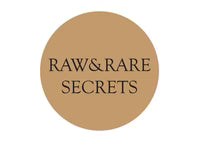
When it comes to choosing the perfect perfume, most people focus on how it smells — floral, musky, woody, or fresh. But behind every beautiful fragrance lies an important question: Is it made from natural or synthetic ingredients?
Both natural and synthetic perfumes have their own charm, benefits, and drawbacks. Understanding the difference can help you make an informed choice that suits your lifestyle, skin type, and preferences. Let’s dive deep into the world of natural and synthetic fragrances and find out which one deserves a spot on your dressing table.
What Are Natural Perfumes?
Natural perfumes are made from ingredients derived directly from nature — such as flowers, fruits, woods, spices, and resins. These components are extracted through methods like steam distillation, cold pressing, or solvent extraction.
For example, rose oil comes from rose petals, sandalwood oil from sandalwood trees, and citrus oils from the peel of fruits. These raw materials are blended carefully to create 100% natural scents without synthetic chemicals.
Advantages of Natural Perfumes
-
Gentle on Skin: Natural oils are generally safer for sensitive skin and less likely to cause irritation.
-
Eco-Friendly: Sourced from renewable natural ingredients, they have a smaller carbon footprint.
-
Unique and Complex: Each batch of natural perfume smells slightly different, giving it a rare, organic touch.
-
Therapeutic Benefits: Many natural ingredients, like lavender and jasmine, have aromatherapy benefits that can calm, uplift, or energize you.
⚠️ Drawbacks of Natural Perfumes
-
Shorter Longevity: Natural perfumes fade faster since they lack synthetic fixatives.
-
Limited Range: Certain scents (like oceanic or metallic notes) can’t be achieved naturally.
-
Higher Cost: Extracting natural oils is expensive, which increases the final price.
-
Stability Issues: They may change or lose their fragrance over time due to exposure to heat and light.
What Are Synthetic Perfumes?
Synthetic perfumes are created using lab-made aromatic compounds that replicate or enhance natural scents. These ingredients allow perfumers to experiment with unique notes and long-lasting compositions that may not exist in nature.
Most modern perfumes on the market are either fully synthetic or a blend of natural and synthetic elements.
Advantages of Synthetic Perfumes
-
Long-Lasting: Synthetic fixatives help perfumes stay on your skin for hours or even all day.
-
Affordable: Lab-created ingredients cost less than rare natural extracts, making them more accessible.
-
Wider Variety: Perfumers can craft innovative scents — from fresh rain to cotton candy — impossible to achieve naturally.
-
Stable Composition: Synthetic perfumes don’t degrade easily and retain their scent longer in storage.
Drawbacks of Synthetic Perfumes
-
Possible Irritation: Some synthetic ingredients can cause allergic reactions on sensitive skin.
-
Environmental Impact: Certain chemicals may not be biodegradable or eco-friendly.
-
Less Authentic Aroma: While advanced, synthetic scents can sometimes lack the depth and natural warmth of botanical extracts.
Blended Perfumes: The Best of Both Worlds
Many modern perfumers prefer a balanced blend of natural and synthetic ingredients. This approach combines the authenticity of nature with the creativity and longevity of modern chemistry.
For example, a perfume might use natural jasmine oil for its heart note but enhance it with synthetic musk for staying power. This hybrid style gives consumers the best of both worlds — richness, affordability, and lasting freshness.
If you love perfumes that last long yet feel natural, blended perfumes are the ideal choice.
How to Decide Which One Is Right for You
Your choice between natural and synthetic perfumes depends on your skin type, lifestyle, and values. Here’s a quick guide:
| Preference | Go For | Why |
|---|---|---|
| Sensitive skin | Natural perfumes | Gentle and soothing |
| Long-lasting scent | Synthetic perfumes | Stays longer, stronger projection |
| Eco-conscious lifestyle | Natural or eco-certified synthetic | Sustainable choices |
| Unique fragrance | Blended perfumes | Balanced & artistic scent profiles |
| Budget-friendly | Synthetic perfumes | Affordable yet diverse options |
Final Thoughts
There’s no clear winner in the natural vs synthetic perfume debate — it’s all about what feels right for you.
If you value purity, sustainability, and individuality, natural perfumes are a great choice. But if you prefer affordability, variety, and long-lasting performance, synthetic or blended perfumes might suit you better.
At the end of the day, perfume is personal — it’s an expression of your identity, emotion, and mood. So, whether your signature scent is extracted from roses or created in a lab, wear it with confidence and let it tell your story every day.
